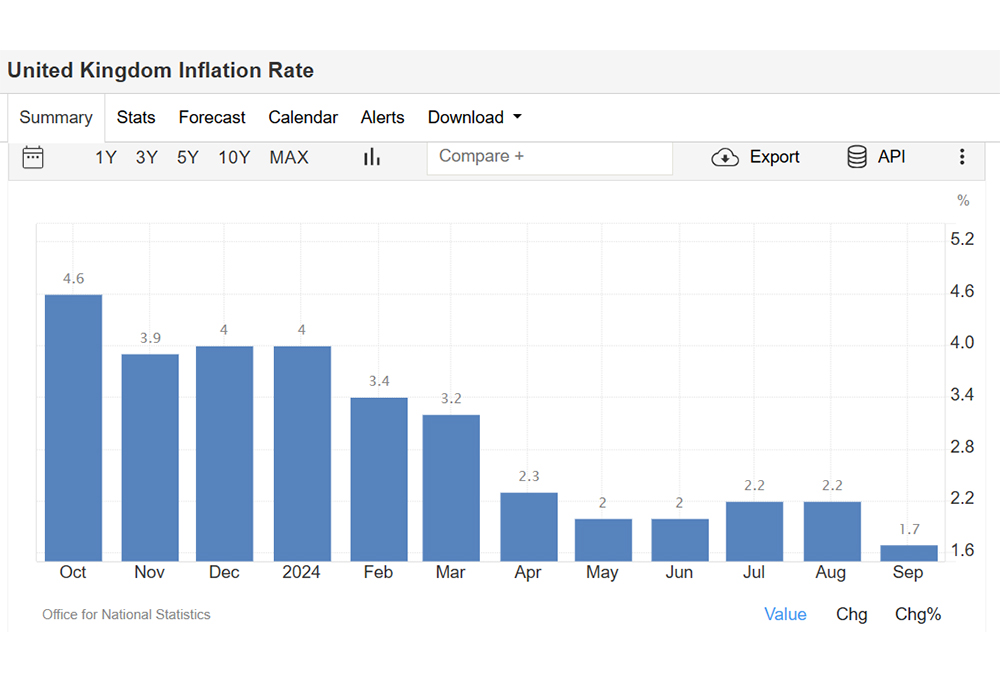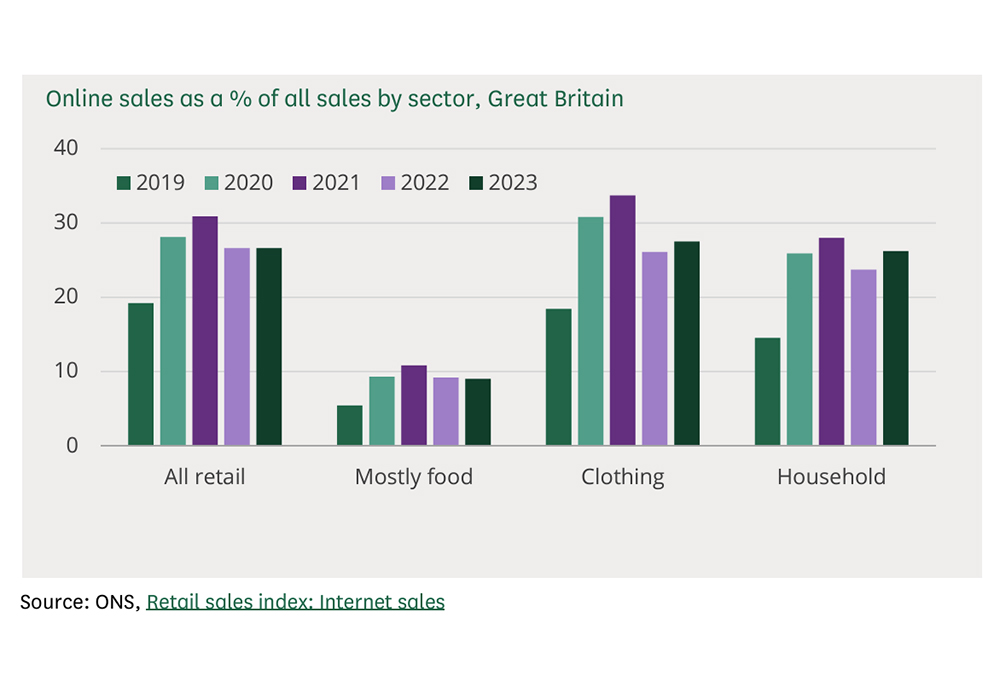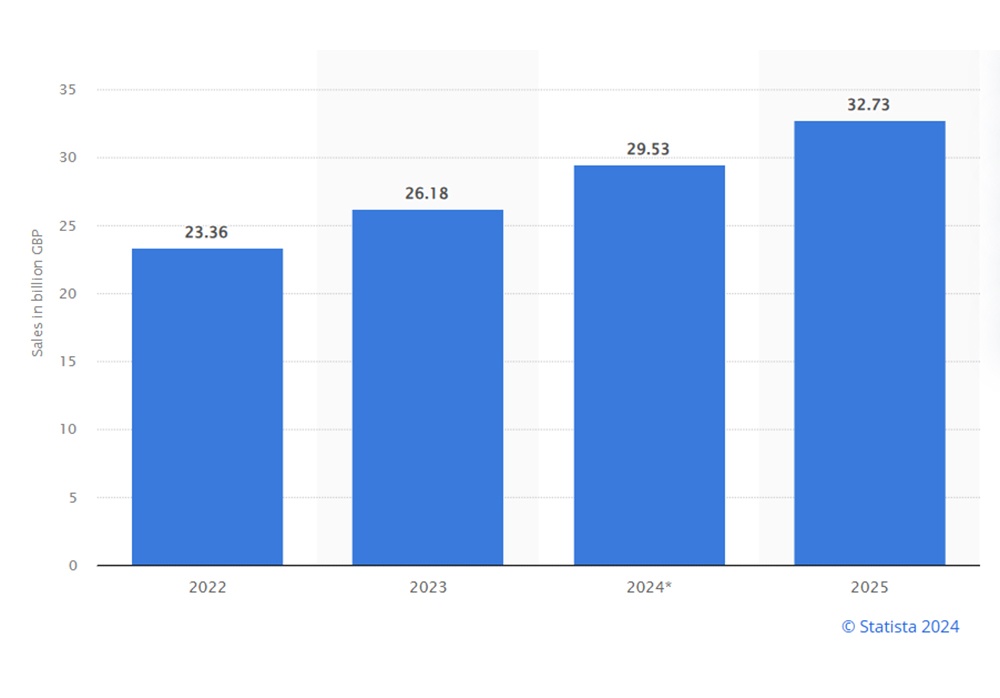
How modern POS can help UK retail prepare for a return to consistent growth
In my role at Aptos, I talk to retailers across the UK every day, and I consistently hear two things from them:
1) It's been a difficult few years, to be sure.
2) They are guardedly optimistic about the near future.
Despite the challenges of the recent past, they do think that things are going to improve. Cooling inflation and less supply chain disruption have many retailers looking for signs that consumer confidence is on the upswing and that there is more discretionary income to spend.

What most retailers I speak with are far less confident in, however, is their ability to actually win their share of consumer spend. They know that technology has to play a role in their strategies, but where to invest and in which technologies are decisions that still feel unclear.
And while I can certainly be accused of having a bias, I have been working in retail long enough – and have spoken to enough retailers – to say with objective confidence that investing in the store is almost always a safe place to start.
But don't take my word for it; simply follow your customers. Internet sales comprise less than 30% of all retail sales in Great Britain, meaning 70%+ of all retail sales are still occurring in the store.

Logic would indicate that if the vast majority of all transactions occur in the store, a retailer that improves how they interact with, inform, service and sell to in-store customers should have a significant impact on their ability to increase conversions and grow market share. Logic also dictates that deploying technology capable of helping store staff support the ever-changing expectations of today's modern shoppers could have a significant impact on retailers' ability to achieve those conversion and market goals.
And when it comes to technology that can improve in-store customer experience and engagement, look no further than POS. Let's consider what a modern POS platform can do for your store employees, your customers and your strategic growth objectives.
For starters, modern POS platforms, when properly deployed in the cloud, can make it much easier to stay current with customer expectations. You know, the expectations that are always changing? Those expectations. When your POS platform is deployed and managed in the cloud, updates to the software are tested and managed centrally and deployed automatically. No more arduous plans for store-by-store upgrades. No field support impact to IT, and no impact to the stores (other than alerting them to the new features available to them after the upgrades are complete).
Also high on the list of impacts of modern POS platforms is employee empowerment. Empowered shop assistants are selling shop assistants. Imagine the selling power of every employee, in every store, equipped with detailed and real-time product, customer, promotion and inventory availability information in the palm of their hand. No question would go unanswered, no sales opportunity missed because of limited visibility into every option required to save every sale. Customer service standards will rise hand in hand with conversions and – perhaps as importantly – customer loyalty.
Modern POS platforms also empower your stores to go where your customers gather. With mobile-first POS technology, store managers can easily send a store employee or two, with an iPhone and inventory, to local events like fairs, races and festivals to bring your stores to your customers. No more waiting for shoppers to come to the high street.
Modern POS platforms also greatly enhance your ability to support shopping journeys that cross channels. And omnichannel orders that include the store as one of the channels are gaining in importance every year. According to eMarketer, 15.4% of 2023 UK ecommerce orders were fulfilled by click-and-collect, almost double pre-pandemic levels. And we all know how much more shoppers spend when they visit a store to collect their orders. It's estimated that they spend 15-20% on top of the value of the original order. And click-and-collect orders show no signs of slowing in the near future.

Having a POS platform that seamlessly integrates, modifies and, yes, even returns orders started in other channels is critical to achieving your growth objectives. Because every store interaction – especially if assisted by empowered and informed staff – has the potential for add-on sales. Suddenly, all those online order returns have the potential for improving revenue – if we can get shoppers into the store to return their orders and we reward them with simple, seamless transactions.
So, yes, I am biased. I do believe in the power of modern POS. Because I have seen it succeed. And the business value is very real.



